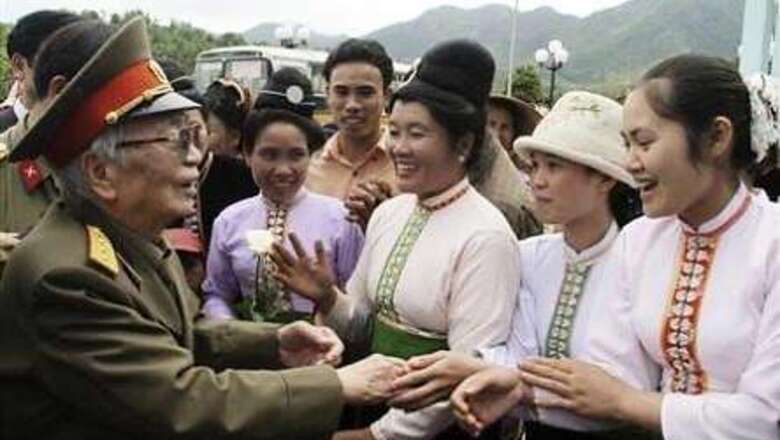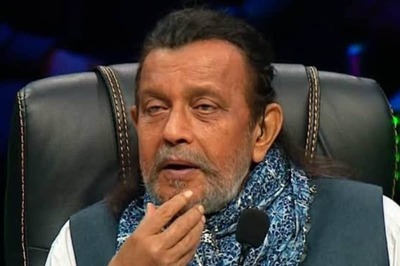
views
Vo Nguyen Giap, the self-taught Vietnamese general who masterminded the defeats of France and the United States to become one of the 20th century's most notable military commanders, died on Friday. He was 102.
The victories of the "Red Napoleon" over vastly better equipped Western armies helped to usher the end of European colonialism worldwide and to entrench communist rule in Vietnam.
Short and slightly built, Giap was a legend in Vietnam, with a standing second only to that of revolutionary leader Ho Chi Minh. To historians, he was a general who ranked with giants such as Montgomery, Rommel and MacArthur.
Critics saw him as ruthless: willing to accept immense losses among his own forces. His defenders said his strategic ability and astute tactics won wars against enemies whose resources dwarfed those of a peasant army.
"Surrender" is not a word in my vocabulary, he once said. In Giap's words, any army fighting for freedom "had the creative energy to achieve things its adversary can never expect or imagine."
The Vietnamese humiliation of the French army at the battle of Dien Bien Phu in 1954 not only doomed the world's second largest colonial empire, it helped bring an end to colonialism worldwide.
Two decades later, Giap forced the retreat of the even bigger military machine of the United States from what was then South Vietnam, starting 38 years of communist rule over the country that are unbroken to this day.
Giap had been the last survivor of Vietnam's generation of revolutionary leaders.
For leftist and other insurgents worldwide, his textbooks on guerrilla warfare were required reading.
Giap died of natural causes after several years in a Hanoi military hospital. Family members and a hospital source confirmed his death. It was not expected to be formally announced until Saturday.
Born in central Vietnam on August 25, 1911, Giap was the son of a peasant scholar and at 18 he was imprisoned by French rulers for communist activities.
He was later freed and gained a law degree at Hanoi University. To the end, his appearance was always more that of the scholar and teacher that he had first set out to be.
Giap helped organise resistance to Japanese occupation during World War Two. When the French returned to their colonies in Indochina after the war, Giap fought them too.
Millions of Vietnamese were killed in the wars and Giap's foes said his effectiveness had been down to his readiness to sustain such human losses.
American commander who took the same vast losses as General Giap would have been sacked overnight," his old enemy, the late U.S. General William C. Westmoreland, was quoted as saying in a 1983 book.
Giap's response to such accusations, according to Vietnam War correspondent Joseph L. Galloway, was that "I would have gladly sent 5 million or 10 million if that is what it took to rid our country of the foreigners; to gain our freedom."
Giap is nonetheless known to have opposed some costly military decisions, including the move in 1968 to delay the withdrawal of forces from impossible to defend positions in South Vietnam during the Tet Offensive, which became a turning point in the war.
After the US defeat and 1975 retreat from Saigon - renamed Ho Chi Minh city - came another war with a superpower. When neigbouring China invaded in 1978, Giap helped organise the defense, driving back the Chinese with heavy losses.
Then his political and military influence started to wane.
Some members of the establishment resented him and he was replaced as defense minister in 1980 and dropped from the all-powerful politburo two years later.
The old warrior mellowed.
He switched from revolutionary rhetoric to preaching peace. Before retiring, Giap headed state committees that oversaw development of science and technology and family planning.
Giap's first wife died in a French jail in 1943. He remarried, having three daughters and two sons, one named Vo Dien Bien after the location of the French defeat.
In a 2004 interview with Reuters at his spacious colonial-era villa, Giap recalled that on a visit to the United Nations in Geneva, he was handed a book to sign.
"I wrote...and signed Vo Nguyen Giap, General of Peace."



















Comments
0 comment